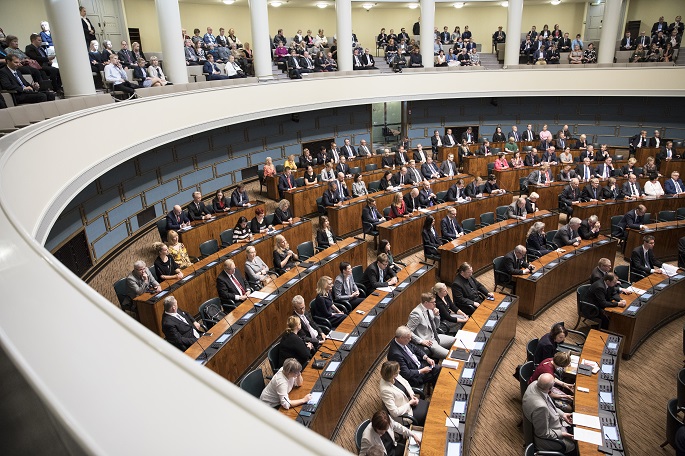Parliament ratifies Faro Framework Convention
Published : 03 Nov 2017, 23:44
Parliament on Friday ratified the Faro Framework Convention and passed a bill bringing into force the provisions of a legislative nature of the Convention in Finland, said a government press release.
The Faro Convention emphasises the role of cultural heritage as a common and valuable resource, the diversity of cultural heritage, and the significance of cultural heritage as a resource for sustainable economic development. The Convention entered into force internationally in June 2011.
The Faro Convention was born out of the desire of the Committee of Ministers of the Council of Europe to create a framework that would show what kind of economic, social and cultural possibilities and resources cultural heritage can offer. To date, 22 states have signed the Convention and 17 states have expressed their consent to be bound by the Convention.
The Faro Convention is a framework convention that addresses a wide range of aspects and questions pertaining to cultural heritage. The Convention is based on the idea that rights relating to cultural heritage are inherent in the right to participate in cultural life, as defined in the Universal Declaration of Human Rights.
According to the Convention, conservation of and respect for cultural heritage have positive effects on the quality of life.
One of the key objectives of the Convention is to strengthen the connection between cultural heritage, quality of life, identity and sustainable development in society. The Convention emphasises the role of cultural heritage as a resource, the diversity of cultural heritage, and its significance as a resource for sustainable economic development.
The Convention is based on the idea that rights relating to cultural heritage are inherent in the right to participate in cultural life, as defined in the Universal Declaration of Human Rights.
One of the key principles of the Convention is that everyone, alone or collectively, has the right to benefit from the cultural heritage and to contribute towards its enrichment. This right also includes the responsibility to respect the cultural heritage of others.
The implementation of the Convention is estimated to have positive effects on industries that exploit cultural heritage. For example, cultural tourism destinations attract a lot of visitors and have an important, employment-promoting role in the region they are situated. Cultural heritage sites, including museums, world heritage sites and significant cultural heritage environments, are important cultural tourism destinations. The management of cultural heritage promotes employment as well.


